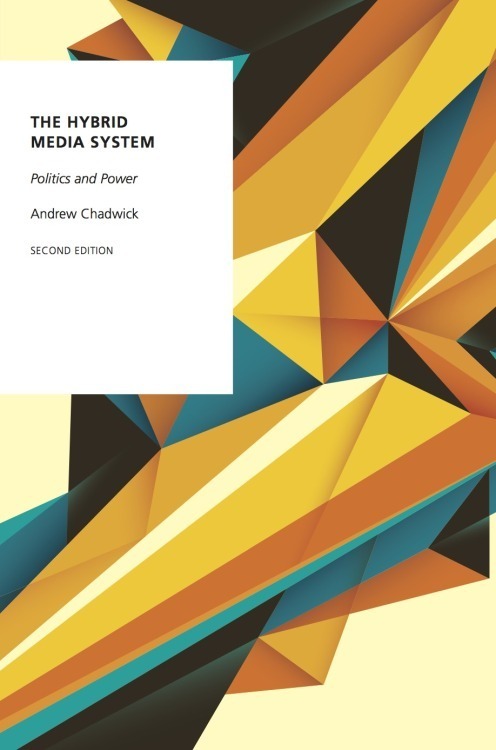New article: Online Social Endorsement and Covid-19 Vaccine Hesitancy in the UK
/UPDATE August 31, 2022: This study has won the American Political Science Association’s Paul Lazarsfeld Award for the Best Paper in Political Communication. We have donated the Award prize money to the WHO Foundation’s Go Give One fundraising campaign and we encourage you to also donate to this cause.
+++++
The second study from the OCEANSII vaccine hesitancy project is now published in Social Media & Society.
The article was accepted for publication on February 24, 2021. It is open access and free to read. You can also download a copy from the Loughborough University repository.
Abstract and details below. We also have a short piece on Medium, summarizing the findings.
Update May 20, 2021: I presented this research at a recent conference. You can watch the video here.
Special thanks to Daniel Freeman for his inclusive leadership on the OCEANS project.
Online Social Endorsement and Covid-19 Vaccine Hesitancy in the UK
Andrew Chadwick,1 Johannes Kaiser,1 Cristian Vaccari,1 Daniel Freeman,2,3 Sinéad Lambe,2,3 Bao S. Loe,4 Samantha Vanderslott,5 Stephan Lewandowsky,6 Meghan Conroy,1 Andrew R. N. Ross,1 Stefania Innocenti,7 Andrew J. Pollard,5 Felicity Waite,2,3 Michael Larkin,8 Laina Rosebrock,2,3 Lucy Jenner,2,3 Helen McShane,11 Alberto Giubilini,9 Ariane Petit,2,3 & Ly-Mee Yu.10
Abstract
We explore the implications of online social endorsement for the Covid-19 vaccination programme in the UK. Vaccine hesitancy is a longstanding problem, but it has assumed great urgency due to the pandemic. By early 2021, the UK had the world’s highest Covid-19 mortality per million of population. Our survey of a nationally representative sample of UK adults (n=5,114) measured socio-demographics, social and political attitudes, media diet for getting news about Covid-19, and intention to use social media and personal messaging apps to encourage or discourage vaccination against Covid-19. Cluster analysis identified six distinct media diet groups: news avoiders, mainstream/official news samplers, super seekers, omnivores, the social media dependent, and the TV dependent. We assessed whether these media diets, together with key attitudes, including Covid-19 vaccine hesitancy, conspiracy mentality, and the news-finds-me attitude (meaning giving less priority to active monitoring of news, and relying more on one’s online networks of friends for information) predict the intention to encourage or discourage vaccination. Overall, super-seeker and omnivorous media diets are more likely than other media diets to be associated with the online encouragement of vaccination. Combinations of a) news avoidance and high levels of the news-finds-me attitude and b) social media dependence and high levels of conspiracy mentality are most likely to be associated with online discouragement of vaccination. In the direct statistical model, a TV-dependent media diet is more likely to be associated with online discouragement of vaccination, but the moderation model shows that a TV-dependent diet most strongly attenuates the relationship between vaccine hesitancy and discouraging vaccination. Our findings support public health communication based on four main methods. First, direct contact, through the post, workplace, or community structures, and through phone counselling via local health services, could reach the news avoiders. Second, TV public information advertisements should point to authoritative information sources, such as NHS and other public health websites, which should then feature clear and simple ways for people to share material among their online social networks. Third, informative social media campaigns will provide super seekers with good resources to share, while also encouraging the social media dependent to browse away from social media platforms and visit reliable and authoritative online sources. Fourth, social media companies should expand and intensify their removal of vaccine disinformation and anti-vax accounts, and such efforts should be monitored by well-resourced, independent organizations.
Keywords: Covid-19, Coronavirus, Vaccination, Online Social Endorsement, Media diet, Social Media, News-finds-me, Conspiracy Mentality
1 Online Civic Culture Centre, Department of Communication and Media, Loughborough University, Loughborough, UK
2 Department of Psychiatry, University of Oxford, Oxford, UK
3 Oxford Health NHS Foundation Trust, Oxford, UK
4 The Psychometrics Centre, University of Cambridge, Cambridge, UK
5 Oxford Vaccine Group, Department of Paediatrics, University of Oxford, Oxford UK
6 School of Psychological Science, University of Bristol, Bristol, UK
7 Smith School of Enterprise and the Environment, University of Oxford, Oxford UK
8 Department of Psychology, Life and Health Sciences, Aston University, Birmingham, UK
9 Oxford Uehiro Centre for Practical Ethics, University of Oxford, Oxford, UK
10 Nuffield Department of Primary Care, University of Oxford, Oxford, UK
11 Nuffield Department of Medicine, The Jenner Institute, University of Oxford, Oxford, UK




